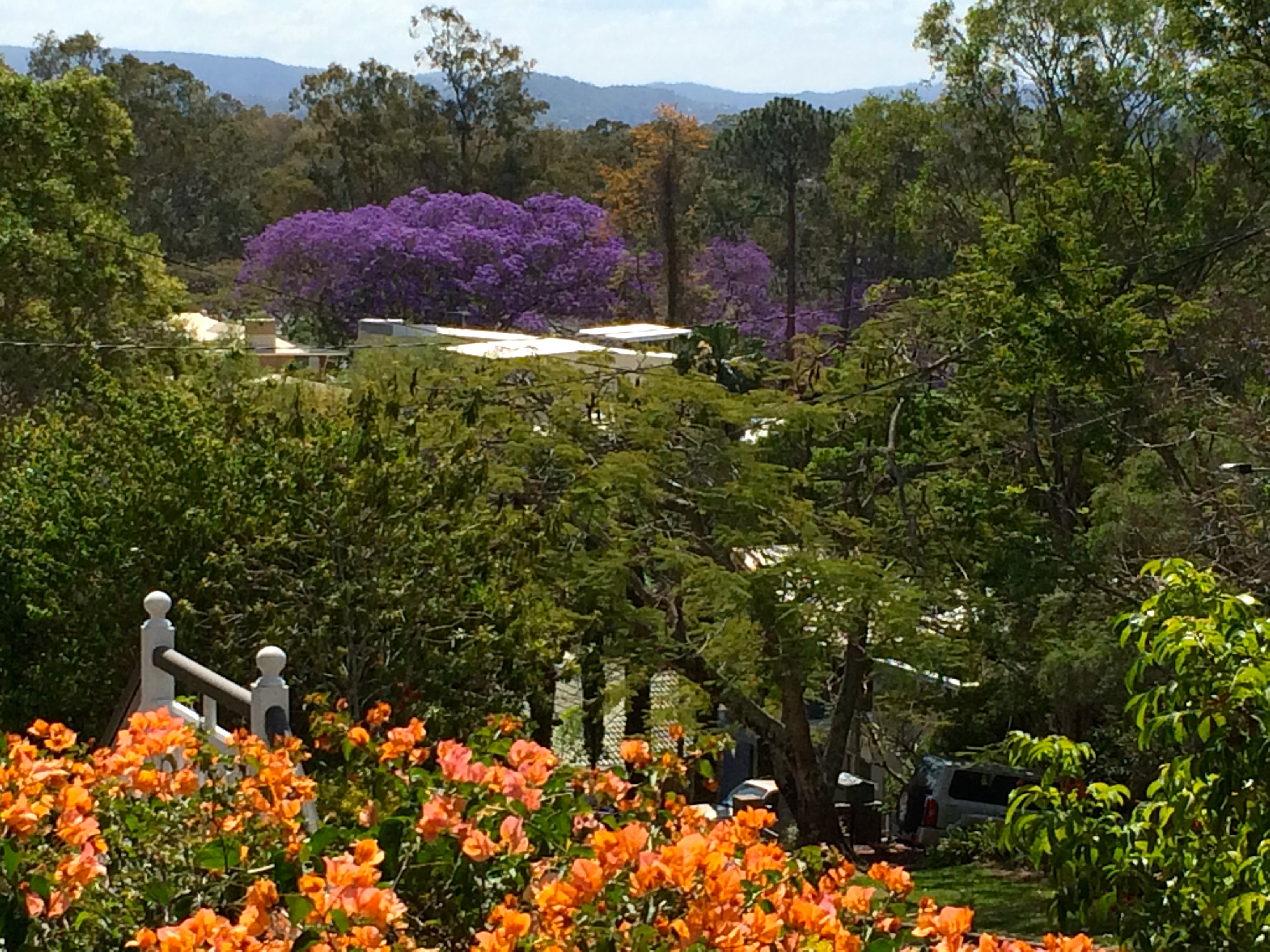While I was running under the mauve of the jacarandas and through their leafy puddles, I realized that although I admire the spirit of some Australians and the beauty of the landscape and the peculiarity of the wildlife, right now I do not like the message that Australia, the nation, is sending out to the world, nor do I endorse its politics.
For an immigrant like me, this is a problem. How can I responsibly consider becoming Australian if I disagree with the direction Australia is taking?And, as an immigrant, am I even allowed to say these things, or will I be told as I’ve heard so often in the past, if you don’t like it, leave.
There are many things I don’t know, but what I do know is that over my 12 years in this country, living in Sydney and Brisbane and traveling around, I’ve watched Australia prosper economically and become greedier and meaner at the same time.
There. I’ve personified a country. And still I wonder, who is behind this charge and if most Australians disagree with it, why is it still happening?
Compassionate, caring, welcoming are not words that come to mind when I think of Australia. And that is disappointing.
Then as I finished my sweaty run under the glaring Queensland sun, I noticed a sign outside a local croquet club, welcoming people.
The sign reminded me of Jessica Rudd’s speech for Welcome Australia last month. Rudd was ambassador for Brisbane’s first Walk Together march which welcomes immigrants and refugees.
”Long before divisive politics got in the way, welcome was the cornerstone of human kindness. Welcome is how individuals become communities. Welcome is the genesis of belonging. It’s what we hope for from others and what we should expect of ourselves,” she said.
As someone who’s lived in four countries, speaks two languages and who seems to be making a life-long study out of belonging, or not belonging, I can only agree. Wholeheartedly.It’s not often that I see signs of welcome here and maybe that’s part of the reason I feel I don’t belong. As a nation, if Australia is clearly unwelcoming to some who arrive by boat, for others, like me who arrived by plane, it has been mediocre: I’ve neither been ostracized nor have I been warmly welcomed.
I’ve come to another disappointing realisation: that, in general, Australians are deeply conservative and reserved, while I am neither of those things.
Again, this left me wondering: is this country such a good fit after all or will the flip flops rub blisters between my toes so I cannot run freely?
If the first step to belonging is a generous welcoming smile, then Australia is just not pulling its weight. Polls show recent migrants don’t consider Australians to be nearly as friendly or caring as they were in 2000 and more Australians feel negatively towards immigrants from the Middle East and want boats carrying refugees sent back, according to Scanlon Foundation and others.
In a June speech, playwright Andrew Bovell said he has felt ashamed to be Australian. He relayed a conversation with a woman he met in London at the Young Vic theatre.
”Why is Australia such a racist country?” she asked.
”Are you talking about the situation with indigenous Australians or asylum seekers?” he said.
He talks of the knot he felt in his stomach, how he wants to explain that Australia is actually very progressive but he can’t because he realizes ”in that moment it’s just not true.”
”We are known for our racism. And in that moment I feel utterly ashamed to be Australian.”
Bovell inspired me most when he acknowledged that Australia, as a society, is still a work in progress and that he will fight his part for the ”argument for the soul of the nation.”It is clear from his speech that the soul of his nation is one of acceptance and compassion.
I know there are many Australians like Andrew Bovell — or Michael Mohammed Ahmad who started Sweatshop, a western Sydney literacy movement, or Jane Griffin who set up a not-for-profit art therapy organization FHEAL to help refugee children, or barrister and human rights advocate Julian Burnside — I know there are many who are working to make Australia more compassionate, more accepting and welcoming.
And yet their voices seem so small. So hard to hear above the shattering of missed opportunities.
Politics is about people and the responsibility of all citizens living in a sacred environment. It’s not just about economics. How can I join this country when I do not see my values reflected in its leaders?
I believe that a nation is only as strong as the voice it gives to its people and it worries me that so many individuals here feel they don’t have a voice, that they have not been heard and that they will not be heard.
This is not a simple topic. It isn’t easy, or maybe even possible, to tease away the fluttering wings of people and place from the tangled net of nation and rhetoric.
And yet, there is a part of me that doesn’t want to sit in the middle ground of not belonging any more, that wants to join the Bovells and the Burnsides and continue working to make a difference.
And, then, there is the other part of me.
The part that does not want to be ashamed to be Australian.




